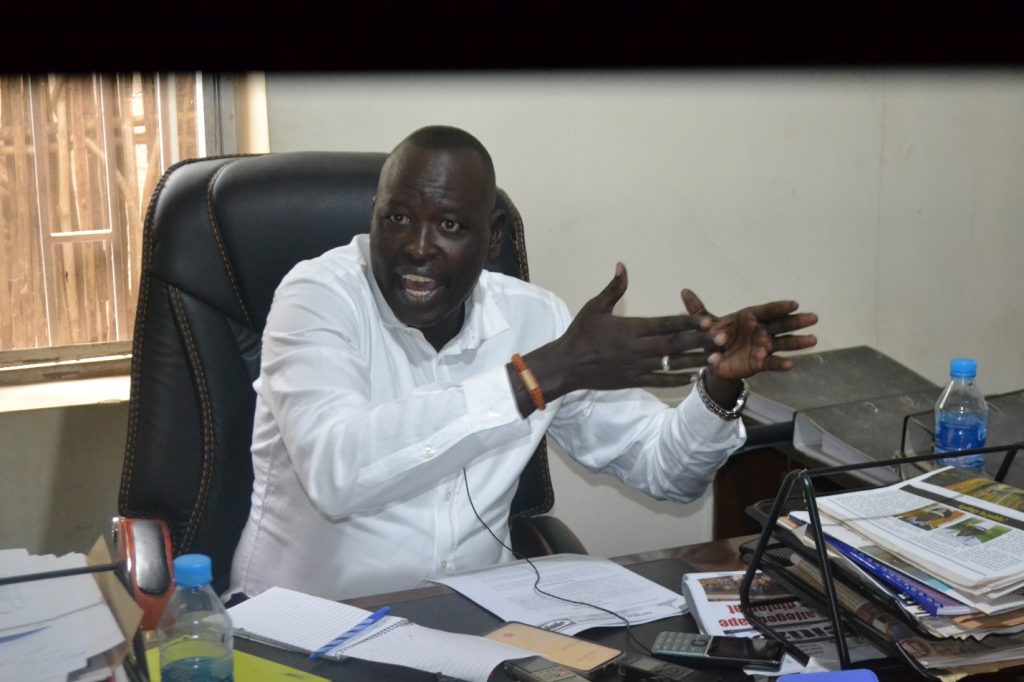
By Mary Poni
The Central Equatoria State Chamber of Commerce, Industry and Agriculture is calling for the implementation of a local order issued by the Juba City Mayor, banning collection of taxes in the Juba’s markets by unauthorized government institutions, associations, groups, individuals and agents.
The Mayor of Juba City H.W Michael Lado Allah-Jabu issued his local order No.11/2022 dated 17th August 2022 for the ban of collection of revenues from traders within Konyokonyo market and any other market within the jurisdiction of Juba City Council by unauthorized groups (Islamic Council, Security Agencies, Associations, companies and individuals).
And it is based on the Mayor’s local order that the Central Equatoria State Chamber of Commerce chairperson yesterday made the reinforcing appeal to the local government and city council to ensure the order is implemented.
Robert said the order is established to bar the people who normally go to the market and collect money yet they are not mandated by the local government.
He added that, there are mandated institutions collecting money and are the only ones being given powers by the parliament, which includes the National Revenue Authority, the State Revenue Authority, county government and Juba city council.
Robert noted that, those are the only institutions mandated to collect money on behalf of the government for provision of services like roads infrastructure among others.
“We need the harmonization of the taxes between the local and county government and also the commissioners to look in to their rate schedules because some of these rate schedules taxes are duplicate,” Pitia said, adding that, “there is need to streamline the taxes such that each institution will know how, where and in what area of the businesses in the market they are mandated to charge taxes.”
The policy of the local orders has been initiated by the Governor Emmanuel Adil and worked on critical issues which are affecting business communities in Central Equatoria.
“The duplication of taxes has created a scenario whereby a trader cannot know exactly how he/she is supposed to pay because the State revenue authority will go and take the same taxes which includes the profit tax and rental value tax,” he underlined.
Pitia noted that the local order came based on the background of problems which are facing some of the traders in parts of Konyokonyo market and other illegal collections of money from traders.
“Therefore, all these should be harmonized with the national revenue authority such that the traders will know what to be taken from them and for the authorized institutions to know like the state, county government and the Juba city council of what they are mandated to take or collect from the traders such that there would be no burden.”
“We need the government to help us to address this issue and I know there is a committee being formed, though we raised the issue but still we need implementation”, Pitia stressed.
Specifically, the city council have problem of land disputes with the Islamic Council, thus, it has been forwarded to court for hearing because it has gotten out of hands.
The Central Equatoria State Chamber of Commerce chairperson revealed, the Islamic Council have deployed security organs who normally harass and intimidate traders in the market saying the government is not going to allow it to happen again since there is an order now.
“Every South Sudanese is equal to any other one because we have the same values like the other people as stated in the constitution that we have our rights”, he said.
Let there be no conflict and crisis in all the markets, what happened in the past should not be repeated.



